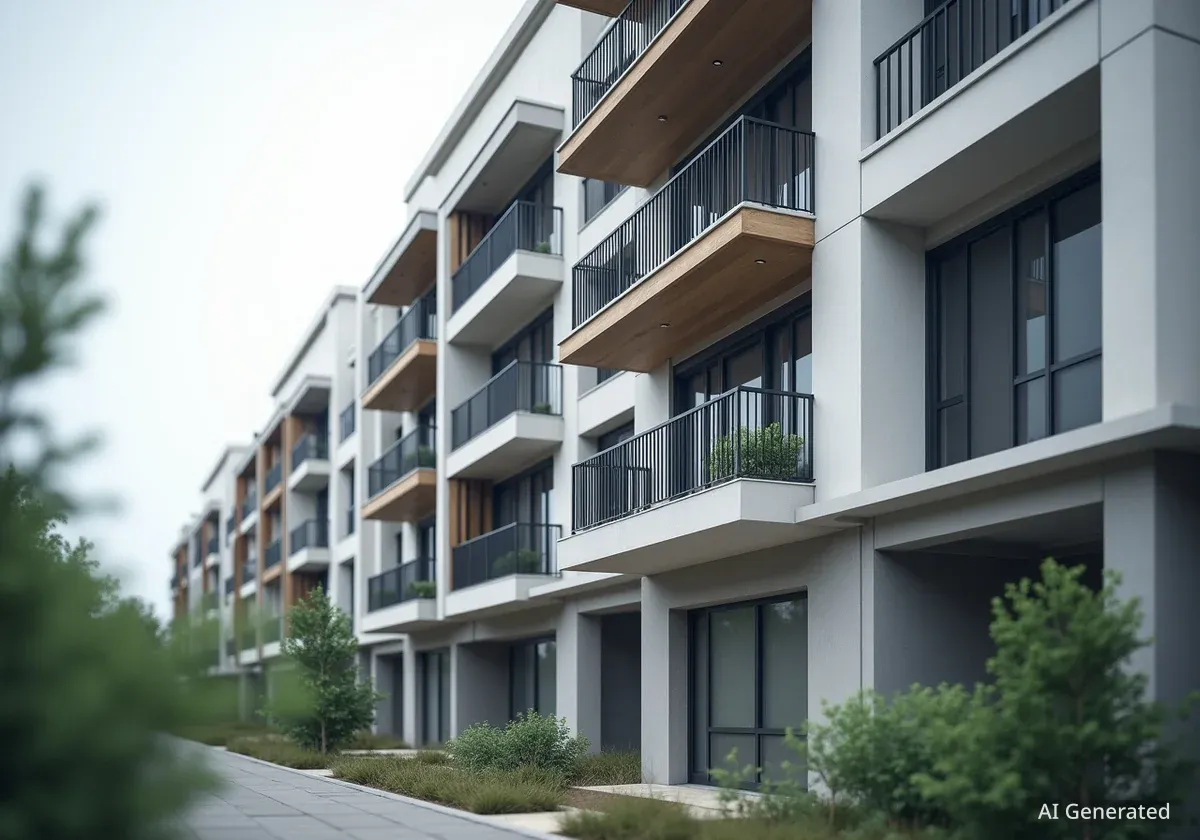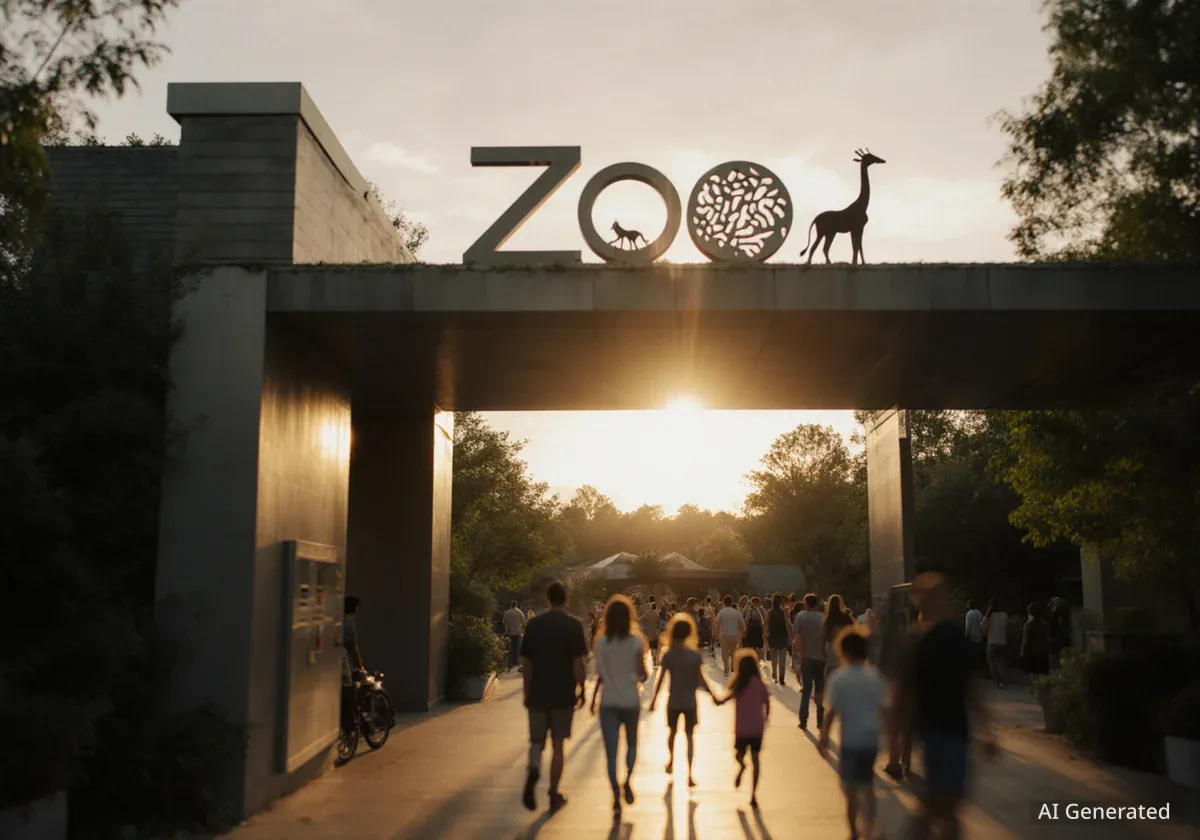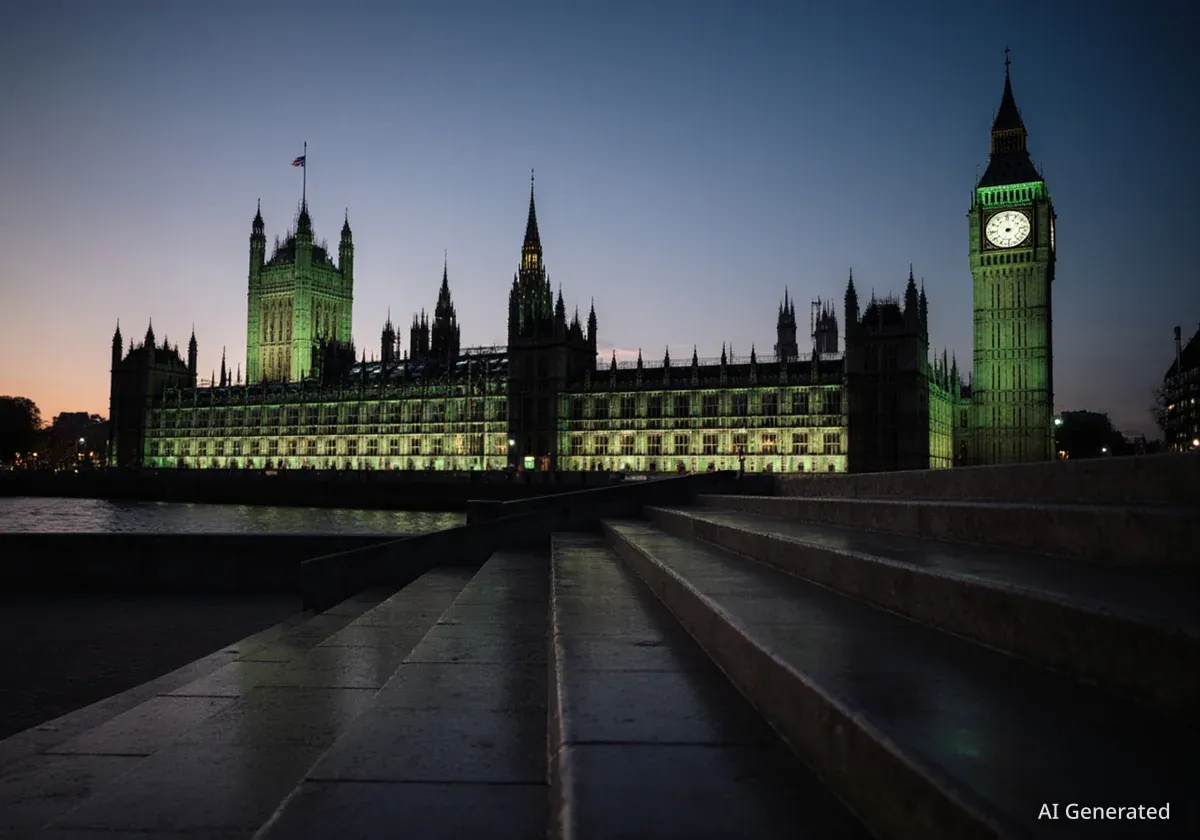Köniz municipal authorities have rejected a proposed multi-generational housing project in Wabern. The decision, which has sparked frustration from the developer, cites design concerns related to the orientation of balconies. Architect Andrea Barben, who owns half of the property, expressed disappointment, stating the project aimed to provide affordable housing and increase living quality, aligning with the municipality's stated housing policies.
Key Takeaways
- Köniz municipality rejected a housing project in Wabern.
- The rejection was based on design arguments, specifically balcony orientation.
- Architect Andrea Barben states the project met legal requirements and municipal housing goals.
- Barben claims inconsistent feedback and lack of dialogue from municipal authorities.
- The case is now under appeal with the canton.
Five-Year Development Ends in Rejection
Andrea Barben, an architect with 35 years of experience, began preliminary discussions for the project in 2020. He planned to replace the western half of his house at the corner of Seftigenstrasse and Weyerstrasse with a larger multi-generational building. This project marks the first time in his career that a building application has been rejected.
Barben stated, "We felt we were doing everything right." He collaborated with a regional architect and involved all stakeholders. The goal was to create a multi-generational home that would improve living quality, contribute to urban densification, and offer more affordable housing options. According to Barben, this aligns directly with the official housing policy of the Köniz municipality.
"The project meets all legal requirements," Barben said, visibly frustrated. "It was rejected by the municipality based solely on design arguments from its Building and Planning Commission. In doing so, they negate their own goals and prevent their realization against the public interest."
Project Overview
- Location: Seftigenstrasse/Weyerstrasse, Wabern
- Developer: Andrea Barben
- Goal: Replace existing half-house with larger multi-generational home
- Timeline: Started 2020, rejected 2024
Inconsistent Feedback and Lack of Dialogue
Barben reported that the Building and Planning Commission provided "different and sometimes contradictory" assessments during the project's development. He also mentioned that the building inspectorate offered slow support. Attempts to arrange a meeting with Christian Burren (SVP), the local councilor for planning and transport, and Mayor Tanja Bauer (SP) were unsuccessful. Barben described the outcome as "a pile of rubble."
This situation mirrors other complaints received by Bern News Today. Another developer in Köniz, who wished to remain anonymous, also reported "little to no constructive willingness to talk" and inconsistent information from the authorities. This individual believed that a more open approach would benefit the building authority itself.
Köniz Housing Policy
The municipality of Köniz officially supports policies that promote urban densification and the creation of affordable housing. Developers like Barben aim to align their projects with these stated objectives, leading to frustration when applications are rejected despite meeting these criteria.
Municipal Councilor Disputes Claims
Christian Burren, the municipal councilor, refuted the criticism regarding a lack of dialogue. He stated, "If a project comes before the Building and Planning Commission multiple times, this itself shows the exchange between the municipality and the project developer." He added that the commission's stance might change as projects evolve.
Burren declined to comment on Barben's specific case because it is an ongoing legal process, currently under appeal with the canton. He noted that Köniz approves approximately 300 building applications annually. Rejections, he emphasized, are "the absolute exception – but only these exceptions are reported."
Dispute Over Balcony Orientation
Barben's frustration is heightened because he believes his project was well-conceived after careful consideration. He decided to replace his half of the three-story apartment building after realizing that a thorough renovation would not be economically viable with the existing floor plans. He also stated that renovation would not resolve the significant noise issue.
When the Building and Planning Commission initially raised concerns about the preliminary design, Barben developed two new versions and reached an agreement with the owner of the other half of the house. The new half of the building would extend closer to Seftigenstrasse, as outlined in the building regulations. The municipality considers the Grünau roundabout, where the house is located, as the beginning of the Wabern center when approaching from Kehrsatz.
In this core zone, the municipality desires an "urban design typical orientation towards Seftigenstrasse," as stated in the rejection notice. However, Barben's design did not turn its back on the main road. "The entrance would be oriented towards Seftigenstrasse – unlike today – and some of the balconies as well." Despite this, living rooms, bedrooms, and a majority of the balconies would face Pappelweg, the quieter residential street on the building's west side.
This "reorientation towards Pappelweg" is the core of the municipality's concern. The rejection states that the desired focus on Seftigenstrasse is lost "because the majority of the balconies are oriented along Pappelweg." Essentially, the municipality is requesting that the balconies face the noisy Seftigenstrasse.
Noise Assessment
A noise assessment conducted for Barben's property revealed that the current apartments violate noise regulations. Barben argues that a replacement building is the only way to manage noise levels effectively and significantly improve living quality.
Legal Certainty Questioned
Barben was surprised when, after three years of project development, two preliminary inquiries, and contrary to earlier statements, the commission suddenly recommended against a replacement building. "The municipality is effectively demanding that I renovate the illegal existing structure," he said.
The municipality's rejection states that because the new building is not clearly oriented towards Seftigenstrasse, it appears "as an alien body in the surrounding overall context." Additionally, the building was deemed too voluminous and lacking "the necessary design care."
"An affront," Barben called it. He is involved in non-profit housing and claims to uphold those values in his private project. "Until suddenly, out of nowhere, a replacement building was advised against, we consistently followed all recommendations and adjusted the project multiple times."
Barben pointed out that the Building and Planning Commission presented new arguments even in the final rejection notice. "I ask myself about the legal certainty in this municipality," he concluded. The project's fate now rests with the cantonal authorities, who will review Barben's appeal.




